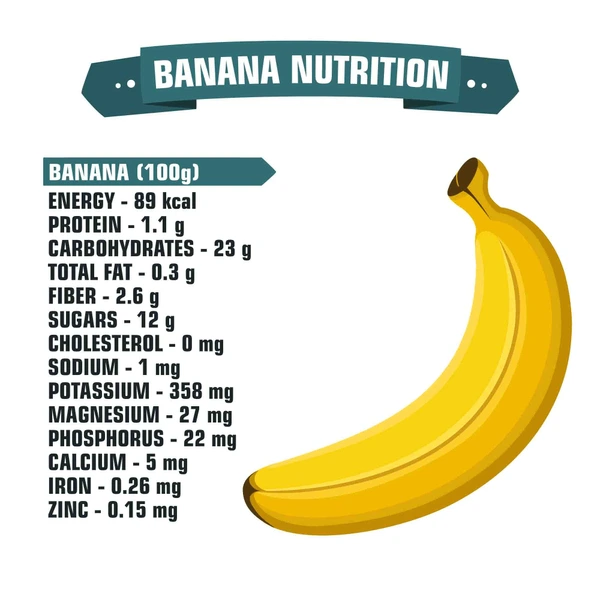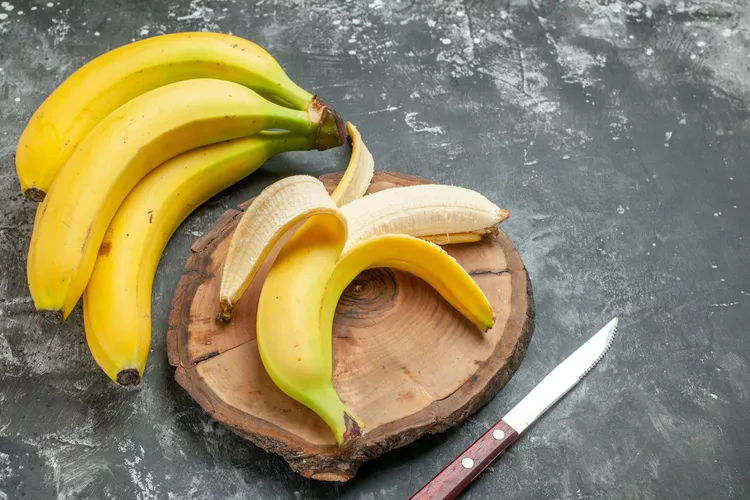Unlocking the Health Secrets of Bananas: A Guide to Nutritional Benefits and Easy Incorporation into Your Daily Diet!
The banana, scientifically identified as Musa acuminata, stands out as a multifaceted and delectable fruit loaded with numerous health advantages. It stands as one of the globally most produced, traded, and consumed fruits, boasting over 1,000 varieties, according to the Food and Agriculture Organization of the United Nations.
Originating from the South and Southeast Asian-Australasian region, the banana has transcended borders, flourishing in more than 120 countries.
Bananas, rich in nutrients like potassium and vitamin B6, offer a spectrum of health benefits from heart support to energy provision.

Boosts Fiber Intake
Encouraging a daily fiber intake of 22 to 34 grams, bananas, with their 3 grams of fiber per medium-sized fruit, play a vital role. This soluble fiber promotes digestive and heart health, potentially lowering the risk of type 2 diabetes and certain cancers.
Heart Health Champion
The soluble fiber in bananas aids in reducing LDL cholesterol, mitigating the risk of heart disease and stroke. Additionally, bananas’ potassium content, with 422 milligrams per medium-sized fruit, assists in managing blood pressure, crucial for cardiovascular well-being.
Digestive Harmony and Easy Digestibility
Bananas contribute to digestive health through soluble and prebiotic fiber, supporting beneficial gut bacteria. Their easy digestibility makes them a preferred choice for individuals with gastrointestinal issues, aligning with bland diets for conditions like GERD and diverticulosis.
Energetic Powerhouse
Packed with carbohydrates, bananas serve as a quick energy source. As they ripen, the shift from starch to sucrose content ensures a swift energy boost. Furthermore, they deliver vitamin B6 for energy metabolism and potassium for muscle function, helping you stay energized throughout the day.
Muscle Function Support
Bananas, rich in potassium, act as a natural source of electrolytes, vital for proper muscle function. Maintaining optimal potassium levels is crucial for averting muscle weakness and fatigue during exercise.
Antioxidant Reservoir
Despite not being the first fruit associated with antioxidants, bananas contain vitamin C, copper, and manganese, offering immune system support and shielding cells from free radical damage.
Resistant Starch in Green Bananas
While green bananas may not be a preferred snack, their rising popularity lies in the resistant starch they contain. This starch resists digestion, benefiting gut health, blood sugar levels, and reducing inflammation.
Nutrient-Rich Profile
A medium-sized banana provides a wealth of nutrients, with notable amounts of vitamin B6, manganese, and other essential vitamins and minerals, contributing to over 100 enzymatic reactions in the body.
Senate Resolution Calls for Elections Postponement
Considerations and Risks
Despite their myriad benefits, bananas pose risks for those with allergies, diabetes, and kidney issues. Portion control is advised to manage carbohydrate impact on blood sugar, and ripe bananas may be limited for those sensitive to oligo-fructans.
Tips for Consumption
Bananas are versatile and easy to incorporate into meals. Whether sliced in cereal, blended into smoothies, spread on toast, paired with protein sources, or used in baked goods, bananas offer a sweet and nutritious addition to various dishes.
In Conclusion
From breakfast to dessert, bananas present a tasty and health-boosting option. Their natural sweetness satisfies cravings without the drawbacks of processed treats. Whether for a snack or a quick energy boost, a banana is a convenient and wholesome choice.
Freelancers Empowered to Utilize Paypal Starting January 11th










